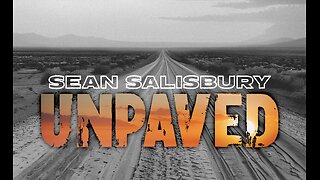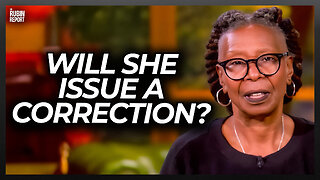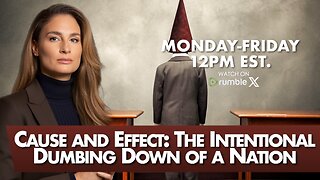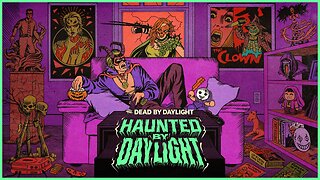Premium Only Content

Is Absolute Monarchy Inevitable?
Absolute Monarchy is an absolute mess. Traditional Monarchy is completely different from Absolute Monarchy. One is stable, beautiful, organic, and long lasting; and the other is unstable, wracked by divisions, unnatural, imbalanced, and destined for revolution. Absolute Monarchies are the direct result of failure to follow the Three Kingly Laws, and in every instance where even one of the Laws is broken in a country, we see that country careen into chaos. Like a tripod, all three laws are necessary for stability.
In order to understand where the modern absolute monarchs came from, we need to look to history. The path to Absolutism in France began long before any kings named Louis, it began long before with the father of the Franks: Charlemagne. That great person did and accomplished many things, but his work was undone because of his failure to follow the third Kingly Law. Because he did not directly pass on his kingdom to his son, all of Charlemagne's empire crumbled. This, along with a generous sprinkling of Viking invasion, led to a series of events that ultimately crushed the Christian nation and turned it into the capital of Atheism that we see today.
Absolutism could have so easily been avoided in France, but they failed. We, on the other hand, are not bound by their failures. We can see how the kings of France gobbled up the local lord's land and powers, and how that voracious appetite led to the ruin of the entire kingdom. We can see what they did, and so we can learn from their mistakes. We can set up Traditional Monarchies today because we have a doctrine of power that is informed by the past and looks to the future.
This episode is part of the on going "Pros and Cons of Monarchy" series and answers the objection that there is too much potential of Absolutism in Monarchy.
Advantages of Monarchy
1. Reduces partisanship and creates a sense of unity
2. Faster Decision-making Process
3. Increases Government Savings
4. Smooth Transition of Power
5. Trained Leaders
6. A Stable and Balanced Government
7. Government is a Local Matter
8. Monarchies Usually Revered by the People under Their Power
9. Nonpartisan Leadership
10. Leadership Focus
11. Advocates for Strong Defense
12. Reduced corruption
13. Transparent chain of command:
14. Act on the interest of everyone
15. The blame is Not Shared
16. A single form of contact for foreign governments
17. Family is the model for society
18. Traditional Monarchies Typically Last for Hundreds of Years
Objections to Monarchy:
1. Lack of Democratic Accountability
2. Lack of Democratic Legitimacy
3. Excessive Power Invested in a Single Person
4. More Difficult to Change the Leadership Internally
5. May Lead to Tyranny
6. Lack of Diversity in the Government
7. Changes according to the ruler
8. Unparalleled Power of the Monarch
9. No Checks or Balances
10. Competency of Leadership is not Guaranteed
11. Promotes Wealth Inequality
12. Lack of Upward Mobility
13. The Ruler may not be a Serious Person
14. Absolute Power has too much Potential for Tyranny
15. Creates a Class System within Society
--16. Potential for absolutism --
17. Government is Too Human
18. Machiavelli Says that Monarchies are Easy to Conquer (But Hard to Hold)
-
 31:39
31:39
The Boomer Effect
3 hours agoGone is the Golden Age of Housing: What went wrong?
2 -
 1:00:16
1:00:16
Timcast
3 hours agoTHE MOB IS BACK, FBI Busts MASSIVE Sports Betting Racket
133K25 -
 2:25:56
2:25:56
Steven Crowder
6 hours agoCandace Just Claimed Trump Killed Charlie
388K522 -
 DVR
DVR
Robert Gouveia
3 hours agoNewsom Crushed AGAIN!! NBA Arrests! NEW Pipe Bomber Info! Melania SUED!
20K11 -
 59:41
59:41
Sean Unpaved
3 hours agoHoops & Handcuffs: FBI's Mafia Takedown in NBA Betting Scandal
13.1K -
 LIVE
LIVE
Side Scrollers Podcast
2 hours ago🔴FIRST EVER RUMBLE SUB-A-THON🔴DAY 4🔴WAKE YOUR ASS UP!
922 watching -
 1:07:10
1:07:10
Rebel News
2 hours agoCarney's lacklustre speech, Libs partner with China, How many illegals in Canada? | Rebel Roundup
10.3K2 -
 41:55
41:55
The Rubin Report
4 hours agoListen to ‘The View’ Crowd Gasp as Whoopi Lies to Their Faces
91.7K55 -
 1:41:47
1:41:47
The Mel K Show
4 hours agoMORNINGS WITH MEL K - Cause and Effect: The Intentional Dumbing Down of a Nation - 10-23-25
31.1K3 -
 2:04:12
2:04:12
ReAnimateHer
1 day ago $0.27 earnedFIRST Live Stream Rusty Hookin
8.47K2